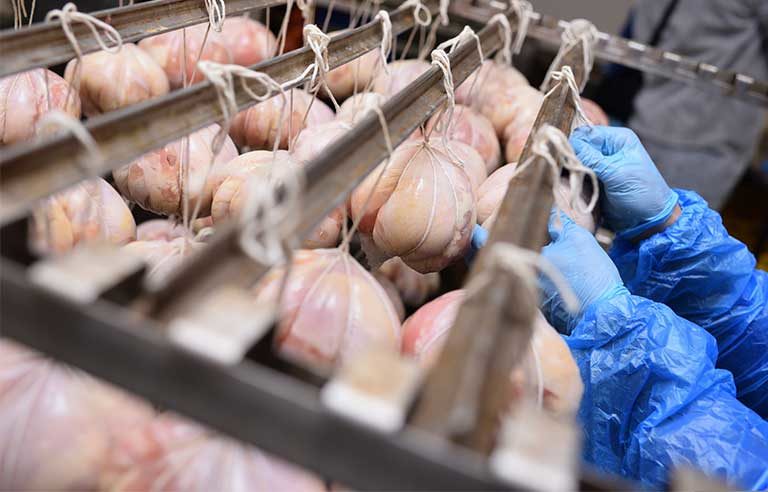GAO calls for stronger infectious disease protections for meatpacking workers

Washington — A new Government Accountability Office report recommends OSHA look at “available actions” – including developing a standard on infectious disease – to help protect workers in the meat and poultry processing industries.
GAO analyzed OSHA inspection data for 2020 and surveyed 15 meat and poultry employers. Among its findings: At one large meat processing plant, workers’ risk for COVID-19 was more than 70 times greater than for the general population of the state in which the plant is located. The exposure risk in this and other plants was heightened because workers operated in close proximity to each other amid cold temperatures while often shouting over production equipment to communicate.
In August, OSHA and the U.S. Department of Agriculture’s Food Safety Inspection Service updated a 1994 memorandum of understanding that states FSIS should report hazards, including infectious diseases, to OSHA. However, GAO found “the agencies did not follow some leading collaboration practices, such as defining outcomes and including key participants.”
It recommends that the secretaries of labor and agriculture ensure their departments meet regularly and “track and monitor progress.”
| Sign up for Safety+Health's free monthly email newsletters and get the news that's important to you. |
In its weekly “Capital Update” report published June 23, the National Pork Producers Council says the North American Meat Institute, a trade representative group, is reviewing the report.
NPPC, via NAMI, writes that “during the outbreak, as soon as more became known about how the COVID virus spread, companies acted immediately to protect employees.
“The meatpacking industry spent more than $1 billion on personal protective equipment and COVID tests, safety protocols and contact tracing, and state-of-the-art ventilation systems. Those efforts reduced illnesses at packing plants well below the national average.”
GAO notes that OSHA had indicated it would respond to the recommendations after the report’s release.
Post a comment to this article
Safety+Health welcomes comments that promote respectful dialogue. Please stay on topic. Comments that contain personal attacks, profanity or abusive language – or those aggressively promoting products or services – will be removed. We reserve the right to determine which comments violate our comment policy. (Anonymous comments are welcome; merely skip the “name” field in the comment box. An email address is required but will not be included with your comment.)

